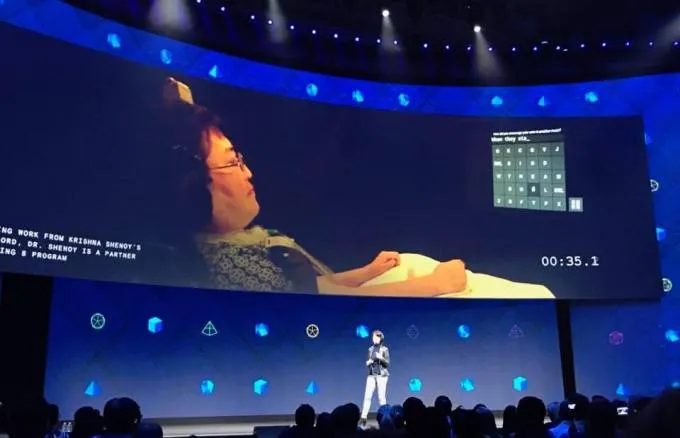Meta CEO Mark Zuckerberg has outlined his view for the development of AI “superintelligence,” which is a goal that he believes is now in view, as we accelerate development of the latest AI systems.
Which, in technical terms at least, are not “AI” at all, as they are not “intelligent,” as such. The current slate of generative AI tools are able to crossmatch data patterns, in order to come up with human-like responses, based on whatever inputs you give them, but that doesn’t equate to thought, and these systems aren’t capable of original ideas or human-like thinking.
Indeed, Meta’s own AI chief Yann Lecun has repeatedly highlighted the limitations with LLMs, noting that such tools will be useful in a range of applications. But they’re not likely to lead to artificial general intelligence (AGI), which is the Holy Grail of AI development, because such systems have no way of understanding the physical world, nor what their outputs are, in practical sense.
In this respect, the current gen AI models are more akin to calculators than replicating human-like thinking. And it’s that next stage, and the possibility of systems that can think for themselves, that Zuckerberg is now aiming for with his new super intelligence team.
Which is a little scary, but Zuck has the money, and time. So it’s happening, whether we like it or not.
As explained by Zuckerberg:
“I am extremely optimistic that superintelligence will help humanity accelerate our pace of progress. But perhaps even more important is that superintelligence has the potential to begin a new era of personal empowerment where people will have greater agency to improve the world in the directions they choose.”
Zuckerberg says that his new superintelligence project aims to “bring personal superintelligence to everyone,” providing the power of advanced machine learning to everyday applications:
“As profound as the abundance produced by AI may one day be, an even more meaningful impact on our lives will likely come from everyone having a personal superintelligence that helps you achieve your goals, create what you want to see in the world, experience any adventure, be a better friend to those you care about, and grow to become the person you aspire to be.”
Yeah, some of these are a little concerning, in reflecting Zuck’s worldview, and the value of such tools. Like, being a better friend seems like that should remain in the realm of purely human experience, but maybe, for people like Zuckerberg, human connection is a key element that true AI can help with. Which may or may not be where we want to be headed.
Either way, Zuckerberg has assembled his own Avengers-like team of AI development superstars, after gathering up staff from other AI projects. That team will be led by Shengjia Zhao, the co-creator of ChatGPT, and Alexandr Wang, the former CEO of Scale AI, with the two of them now tasked with building a system that can replicate the synapses of the human brain in digital form.
Which will be some feat, though Meta is likely the frontrunner in this race.
For years, Meta has been working on computer systems that can understand more about their environment, in order to factor such into their responses.
Meta’s V-JEPA 2 world model, for example, aims to mimic human understanding of the physical world, while Meta’s “Brain Decoding” process, which it first previewed in 2023, which aims to simulate neuron activity, and understand how humans think.
Meta’s even got direct insight into brain control itself, based on its previous efforts to build a human brain computer interface.

That project has been in varying levels of exploration since 2017, and while Meta has since stepped back from its initial brain implant approach, it has been using this same MEG (magnetoencephalography) tracking to map brain activity in its more recent mind-reading projects.
So Meta is already well-advanced in regards to understanding how the human brain functions, and how neurons can be translated to computer chips.
Now, it’s looking to cross the next threshold in building systems that can capitalize on this knowledge.
Can it be done?
Well again, Zuck’s confident that it can, so much so that he’s investing “hundreds of billions” of dollars into making it a reality.
“Personal superintelligence that knows us deeply, understands our goals, and can help us achieve them will be by far the most useful. Personal devices like glasses that understand our context because they can see what we see, hear what we hear, and interact with us throughout the day will become our primary computing devices.”
A world of empowered AI, which you can summon at any time via a wearable device. It’s either utopia, or a disaster, with seemingly little in between.
“The rest of this decade seems likely to be the decisive period for determining the path this technology will take, and whether superintelligence will be a tool for personal empowerment or a force focused on replacing large swaths of society.”
Zuckerberg’s obviously angling for the former, but really, we have no idea where this path leads, and what might come from Meta’s superintelligence push.


